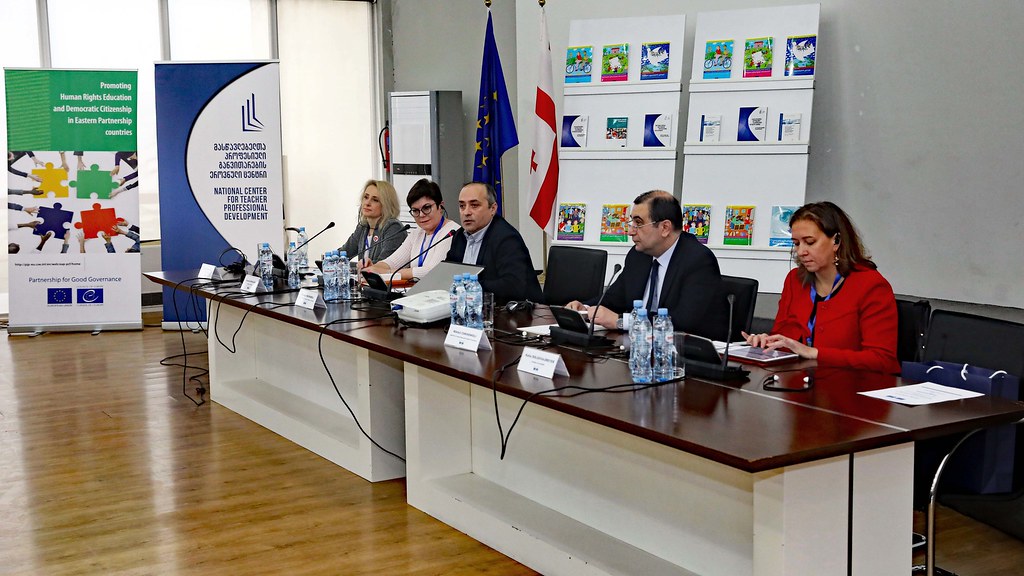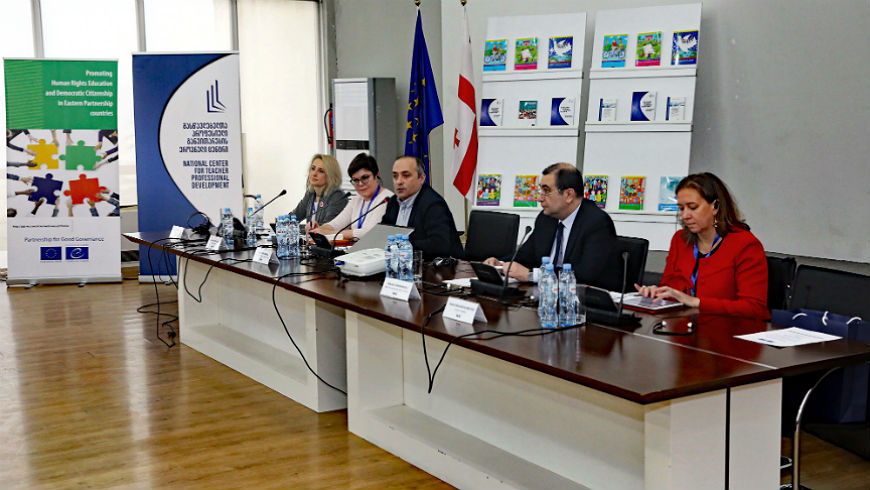What has been achieved after the implementation of the Joint Programme on Promoting Education for Democratic Citizenship and Human Rights Education (EDC/HRE) in Eastern Partnership countries? A conference took place on 21-22 November in Tbilisi, Georgia with the aim to bring together educational professionals and decision makers from the Eastern Partnership countries so that they could exchange experiences, lessons learnt, discuss project results achieved and future opportunities for the EDC/HRE implementation in the future.
Mr Mikheil Chkhenkeli, Minister of Education and Science of Georgia, opened the closing conference stressing that inclusive education too is an important priority of the government of Georgia. “With the joint support of the European Union and the Council of Europe, the work carried out within the Eastern Partnership (…)allows sharing the partner countries’ experience, which in turn is the key factor to success” he stated.

This regional project raises awareness of the main principles of EDC/HRE at the policy level and facilitates the practical implementation of the Charter on Education for Democratic Citizenship and Human Rights Education, (an important reference point for all of Europe), in national education systems.
The project supports integration and/or further development of EDC/HRE in national education systems by facilitating the revision and enhancement of school curricula, development of capacity of educational professionals to teach and promote EDC/HRE and piloting EDC/HRE materials in schools of 6 countries. It also serves to constitute networks of cooperation between different education systems in the Eastern Partnership countries.
EDC/HRE represents an innovative educational approach based on the founding values of the Council of Europe and aims to develop competences and attitudes of all citizens, who will make democratic institutions and laws work in practice.
This activity took place as part of the Partnership for Good Governance, the European Union and the Council of Europe are working in partnership with Eastern Partnership countries to promote Human rights education and democratic citizenship.

